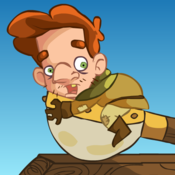
how did charles i influence the nation
One of these supporters, Roger Manwaring, claimed that a refusal to pay forced loans was an offence against God. Charles refused to accept his captors' demands for a constitutional monarchy, and temporarily escaped captivity in November 1647. Meanwhile, Parliament reassembled in London after a recess, and, on November 22, 1641, the Commons passed by 159 to 148 votes the Grand Remonstrance to the king, setting out all that had gone wrong since his accession. As ruler of, The first of these conflicts occurred right after Charles ascendance to the throne between England and Spain and was in large part the result of a failed marriage treaty between Catholic Spain and Protestant England that would have married Charles to the Spanish Infanta.4 Charles had been tricked into a treaty that would have given Catholics increased rights in Protestant England, a provision that would have assuredly angered the people of England.5 In addition, the first Parliament of Charles reign passed two measures that doomed this conflict. The gentry were invited to contribute to a forced loan. They claimed to rule by divine right, where their authority comes from God and they were above the law. This site is using cookies under cookie policy . To pay for the Royal Navy, so-called ship money was levied, first in 1634 on ports and later on inland towns as well. In March 1628, a new parliament was called. The years of his reign are known in English history as the Restoration period. It was a poor start to the reign but it symptomatic of what was to come. To prevent this, Charles dissolved Parliament in June. The queen went to Holland in February to raise funds for her husband by pawning the crown jewels. Only slowly did its generals come to contemplate trying the king. The cookie is used to store the user consent for the cookies in the category "Other. The date January 30th was set aside for perpetual lamentation in the calendar of the Church of England, which required congregations to acknowledge God's mercy in freeing the land 'from the unnatural rebellion, usurpation and tyranny of ungodly and cruel men, and from the sad confusions and ruin thereupon ensuing'. Omissions? His foreign policy was a disaster. Charles, deeply perturbed at his second defeat, convened a council of peers on whose advice he summoned another Parliament, the Long Parliament, which met at Westminster in November 1640. It had all the potential for major trouble. The rebellion failed because the commercial cities of Southern Castile took no part in it, and because Charles, acting upon his own judgment, placed Spaniards, instead of foreigners, in positions of authority. But George Monck, one of Cromwells leading generals, realized that under Cromwells successors the country was in danger of being torn apart and with his formidable army created the situation favourable to Charless restoration in 1660. It would prove unsatisfactory for most kingdoms as they failed under civil war and invasion until the seventeenth century shines a new importance on superior command. The dissolving of Parliament two months later ended this but it showed those in the Lords how the king could potentially treat all of them. It was the goal of Toland, Hollis and their followers to reclaim the regicides from Tory calumny and to demonstrate the integrity of their motives and conduct. Updates? The decisive event was the Second Civil War, fought in 1648. (b) The United States would like North Korea to stop exporting missiles and missile technology to countries such as Iran and would like China to join the United States in working toward this aim. Charles's reign began with an unpopular friendship with George Villiers, Duke of Buckingham, who used his influence against the wishes of other nobility. At the beginning of his reign Charles alienated the Scottish nobility by an act of revocation whereby lands claimed by the crown or the church were subject to forfeiture. The submissive dignity of his bearing on the scaffold was immortalised the following year by the poet Andrew Marvell. At the same time news of a rebellion in Ireland had reached Westminster. Drawing on private writings of the king, it had huge sales. Mansfelds expedition to Northern Europe was a failure as was an attempted attack on Cadiz (October 1625) while part of the navy was used to support an attack on the French Protestants at La Rochelle who were being besieged by, The passing of the Petition of Right mollified the moderates in the Commons, men such as, The most gloomy, sad and dismal day for England that had happened in five hundred years. In order that he might no longer be dependent upon parliamentary grants, he now made peace with both France and Spain, for, although the royal debt amounted to more than 1,000,000, the proceeds of the customs duties at a time of expanding trade and the exaction of traditional crown dues combined to produce a revenue that was just adequate in time of peace. They induced an enduring mistrust of radical institutional change. Marie Antoinette Portrayed as Feminist in New Show, Confirmed: Archie and Lilibet Are Prince, Princess, 70 Rare Photos From Princess Dianas Wedding, 40 Rarely-Seen Vintage Photos of the Royal Family. The remainder of the House of Commons, the sole remnant of the ancient constitution, claimed sovereign power, which it held under the army's shadow. Charles ascended to the English throne in 1625 following the death of his father, King James I. He had been Jamess primary link with Spain since 1611 but was blamed by James and Charles, egged on by Buckingham, for the Spanish Match fiasco. Because kings had often been over thrown but none had ever been trialed in public and executed in public. They had tried the king in open court, where they had demonstrated, as they believed, the illegal course of his rule. Performance cookies are used to understand and analyze the key performance indexes of the website which helps in delivering a better user experience for the visitors. In December 1648 the army marched on London, purged the parliament by force and allowed only that minority to remain -the Rump Parliament - who would sanction the trial of the king. .css-m6thd4{-webkit-text-decoration:none;text-decoration:none;display:block;margin-top:0;margin-bottom:0;font-family:Gilroy,Helvetica,Arial,Sans-serif;font-size:1.125rem;line-height:1.2;font-weight:bold;color:#323232;text-transform:capitalize;}@media (any-hover: hover){.css-m6thd4:hover{color:link-hover;}}What Is Prince William's Net Worth? Only after this was Parliament dissolved when they left the chamber. Charles I was born in Fife, Scotland, on November 19, 1600. The second Parliament of Charles gathered in 1626. The encouragement of these absolutism practices triggered the need to search for a new way to govern. In that time, he transformed the monarchy, ushered in a . England became a much more democratic nation. The Long Parliament enacted legislation that limited the power of the monarch and made government without Parliament impossible (McKay, 508). After James I died on March 27, 1625, Charles ascended the throne. Infoplease is a reference and learning site, combining the contents of an encyclopedia, a dictionary, an atlas and several almanacs loaded with facts. The House of Commons at once passed resolutions condemning arbitrary taxation and arbitrary imprisonment and then set out its complaints in the Petition of Right, which sought recognition of four principlesno taxes without consent of Parliament; no imprisonment without cause; no quartering of soldiers on subjects; no martial law in peacetime. So why did Charles fail to take advantage of this situation whereby the villains of the piece seemed to be those in the Commons who spoke out against royal power? Landing at Dover on May 25, he reached a rejoicing London on his 30th birthday. The cookie is set by GDPR cookie consent to record the user consent for the cookies in the category "Functional". Did Billy Graham speak to Marilyn Monroe about Jesus? It says that a monarch could not put someone in jail for simply opposing the ruler. in 1629. . Therefore, the king/queen only had to answer to God, not the people. In December 1628, Charles issued a royal declaration that reform of the church was no concern of Parliament. The beheading of Charles I on January 30th, 1649, left an indelible mark on the history of England and on the way that the English think about themselves. He was devastated when Henry died in 1612 and when his sister left England to marry Frederick V in 1613. The king, despite his efforts to avoid approving this petition, was compelled to give his formal consent. What was Cromwell's relationship with the Dutch? The judiciary also backed the king and consistently found in his favour over where power lay. Copy. (d) The students at your university or college want to prevent the administration from raising tuition. Moreover, the Puritans, who advocated extemporaneous prayer and preaching in the Church of England, predominated in the House of Commons, whereas the sympathies of the king were with what came to be known as the High Church Party, which stressed the value of the prayer book and the maintenance of ritual. 2023. They were the head of government in all respects, and all decisions were eventually made by them. A Scottish army crossed the border in August and the kings troops panicked before a cannonade at Newburn. Web. However, Charles and Buckingham believed that if the army could loot a port and intercept the goods coming from the Spanish colonies in America, the treasury could be stocked up again. It would have certainly spiked the guns of the Commons. The concept of the Divine Right of Kings was, in the mind of Charles, conclusively proven. The MPs who went to war with Charles in 1642 claimed to be fighting not for parliament against the king but for king and parliament. In London, King Charles I is beheaded for treason on January 30, 1649. Why Are Prince Harry and Elton John in Court? In June the majority of the members remaining in London sent the king the Nineteen Propositions, which included demands that no ministers should be appointed without parliamentary approval, that the army should be put under parliamentary control, and that Parliament should decide about the future of the church. The Columbia Electronic Encyclopedia, 6th ed. Infoplease is part of the Sandbox Learning family of educational and reference sites for parents, teachers and students. It would be a character trait that would have disastrous consequences, as he grew older. In terms of structure, I will be presenting . In 1642, civil war broke out in England. Charles surrendered to a Scottish force and after lengthy negotiations between the English and Scottish parliaments he was handed over to the Long Parliament in London. Is Brooke shields related to willow shields? The Commons decided to use a Petition of Right which was meant to defend ancient, sober and vital liberties. The actual terms were to be left to a free parliament, and on this provisional basis Charles was proclaimed king in May 1660. Charles, a High Anglican with a Catholic wife, aroused suspicion among his Protestant countrymen. Many of his subjects saw him as a tyrannically oppressive leader. At the same time several French ships carrying contraband goods to the Spanish Netherlands were seized by English warships. Oliver Cromwell passed the Navigation Act which said that everyone had to import goods with their own ships. The young king became a fugitive, hunted through England for 40 days but protected by a handful of his loyal subjects until he escaped to France in October 1651. Encyclopaedia Britannica's editors oversee subject areas in which they have extensive knowledge, whether from years of experience gained by working on that content or via study for an advanced degree. We also use third-party cookies that help us analyze and understand how you use this website. Cromwell's corpse was exhumed from Westminster Abbey and exposed on a pole to public derision. Buckingham was assassinated in 1628.. During the18th century, she continued her husband Peter the Great's dream, which was to westernize Russia. King Charles Is reign was unsuccessful, because he was unprepared to take on Scotland, England, and Ireland, each with its own political and legal structures. As a result of Charles' religious, military, and government actions, England was forced to remove almost all of the power given to the monarchy and transfer it to the parliament. The House insisted first on discussing grievances against the government and showed itself opposed to a renewal of the war; so, on May 5, the king dissolved Parliament again. On several occasions, Charles I dissolved Parliament without its consent. Functional cookies help to perform certain functionalities like sharing the content of the website on social media platforms, collect feedbacks, and other third-party features. These cookies help provide information on metrics the number of visitors, bounce rate, traffic source, etc. Our editors update and regularly refine this enormous body of information to bring you reliable information. Whig historians such as S. R. Gardiner called this period the "Eleven Years' Tyranny", because they interpret Charles's actions as authoritarian and a contributing factor to the instability that led to the English Civil War.More recent historians such as Kevin Sharpe called the period "Personal Rule", because they consider it to be a neutral term, and some such as Sharpe have emphasised . The cookie is set by the GDPR Cookie Consent plugin and is used to store whether or not user has consented to the use of cookies. The demands for ship money aroused obstinate and widespread resistance by 1638, even though a majority of the judges of the court of Exchequer found in a test case that the levy was legal. However, along with this autonomy came responsibility in the form of the people. It claimed to hold authority as the representative of the people, but the people neither were nor wished to be represented by it. After witnessing the success of Louis XIV's of France establishment of absolutism, England would soon see that James I, and his son Charles I, will fail at establishing absolutism in England and see a constitutional government established. Many were shocked by the actions of Eliot and his supporters. They attributed the attacks on Puritanism, a still more serious matter to many Roundheads, to the bishops, whom they likewise accused of leading their royal master astray. From his father he acquired a stubborn belief that kings are intended by God to rule, and his earliest surviving letters reveal a distrust of the unruly House of Commons with which he proved incapable of coming to terms. The Petition stated that arbitrary imprisonment (without a stated reason), taxation without Parliaments consent, billeting of the army on the public and subjecting civilians to martial law were all illegal. Astrological Sign: Scorpio. Author of. Advertisement cookies are used to provide visitors with relevant ads and marketing campaigns. South Africa has been invaded AGAIN backed by WEF that is influenced by Charles's philosophies. Hollis' endeavours were heightened by the accession in 1760 of George III, who in the early years of his reign was widely seen as another Charles I in the making. The cookie is used to store the user consent for the cookies in the category "Analytics". Their Parliament would make their decisions, distribute the countrys wealth, and stand for the rights of individuals. What rights were guarenteed by the habeus-corpus act? We've got you covered with our map collection. They knew that it would destroy their cause, though they could not have foreseen how lasting the condemnation of the regicide would be. What was the significance of King Charles execution? In this scenario, Charles had little choice but to dissolve Parliament. They, or anyway most of them, were not republicans. King Charles I left a very important legacy on England. Editor. The New Model Army, raised in 1645 to end the carnage, acquired revolutionary goals in both politics and religion. Now they concluded that Charless innate duplicity would wreck any settlement. They distanced themselves from the biblical zeal of Charles's judges, which with the decline of Puritanism had come to look like seditious cant. With Hydes help, Charles issued in April 1660 his Declaration of Breda, expressing his personal desire for a general amnesty, liberty of conscience, an equitable settlement of land disputes, and full payment of arrears to the army. CHARLES III: This is also a time of change for my family. By the time the fourth Parliament met in January 1629, Buckingham had been assassinated. King Charles I left a very important legacy on England. We use cookies on our website to give you the most relevant experience by remembering your preferences and repeat visits. Once they had removed him, however, they could see no alternative to removing the monarchy itself, as they did in hesitantly worded legislation. On the whole, the kingdom seems to have enjoyed some degree of prosperity until 1639, when Charles became involved in a war against the Scots. the artists who began the die brcke movement chose that name because, Determining an organization's objectives and deciding how to accomplish them is a management function known as:A) Near-shoring.B) Staffing.C) Crowdsou His high-handed actions added to the sense of grievance that was widely discussed in the next Parliament. How did Charles I become king of Great Britain and Ireland? The seventeenth century saw the evolution of two new types of government mainly because of the instability that was caused by religious wars. As a result of these tensions, Charles dissolved parliament three times in the first four years of his rule. Charles was the second surviving son of James VI of Scotland and Anne of Denmark. Copyright 2023, Columbia University Press. Facing another quarrel with parliament, Charles attempted to have five legislators arrested. Even in the 19th century the regicide remained a troubling memory. In 17th-18th century Europe, the age of absolutism, absolute monarchs ruled most of Europe. Get a Britannica Premium subscription and gain access to exclusive content. Even Cromwells death did little to improve his prospects. How did Charles I influence the Anglican Church? The model of one man who could not be chained to a Parliamentary system was Frances King Louis XIV. The unconditional nature of the settlement that took shape between 1660 and 1662 owed little to Charless intervention and must have exceeded his expectations. Thus antagonism soon arose between the new king and the Commons, and Parliament refused to vote him the right to levy tonnage and poundage (customs duties) except on conditions that increased its powers, though this right had been granted to previous monarchs for life. Washington, close behind, ranked third because of his lesser political skills. When his first Parliament met in June, trouble immediately arose because of the general distrust of Buckingham, who had retained his ascendancy over the new king. Leaders of the Commons, fearing that if any army were raised to repress the Irish rebellion it might be used against them, planned to gain control of the army by forcing the king to agree to a militia bill. This cookie is set by GDPR Cookie Consent plugin. He also accepted bills declaring ship money and other arbitrary fiscal measures illegal, and in general condemning his methods of government during the previous 11 years. Mainstream Whigs were as eager to bury the memory of the regicide as Tories were to preserve it. Utilizing absolutism to accept. The Restoration of Charles II in 1660 was greeted with a popular rejoicing that revealed the widespread hatred of Puritan rule. This cookie is set by GDPR Cookie Consent plugin. See more Encyclopedia articles on: British and Irish History: Biographies. He seemed to kind of show that, you know, he was hurting a little bit. Necessary cookies are absolutely essential for the website to function properly. Fight and flight marked these years with the execution of his beloved father shattering his world. Though the king regarded himself as responsible for his actionsnot to his people or Parliament but to God alone according to the doctrine of the divine right of kingshe recognized his duty to his subjects as an indulgent nursing father. If he was often indolent, he exhibited spasmodic bursts of energy, principally in ordering administrative reforms, although little impression was made upon the elaborate network of private interests in the armed services and at court. The cookies is used to store the user consent for the cookies in the category "Necessary". Charles II: Character and Influence Charles was a ruler of considerable political skill. Hobbes, you are adamant in the claim that an absolute monarchy is the best type of government. By the time Charless third Parliament met (March 1628), Buckinghams expedition to aid the French Protestants at La Rochelle had been decisively repelled and the kings government was thoroughly discredited. He is the author of The English Civil Wars (Weidenfeld and Nicolson). 1630s, it, Charles I Rulers of European countries during the 17th century had almost unlimited autonomy over their respective countries. The least influential, Charles I, was born in 1600 and died 1649 when he inherited the throne parliament was very upset with the monarchy and sought to lessen the power of the monarchy. You can specify conditions of storing and accessing cookies in your browser, How did Charles the first influence the nation, a) The other countries of the European Monetary Union (France, Germany, and so on) would like Britain to join the common currency and the common centr The great battles of Tory and Whig, and then of Tory and Liberal, turned on memories of the Civil Wars to an extent that can startle our own time, when politics have become so much less politically and historically informed. After this rebuff the king left London on January 10, this time for the north of England. King Charles II was however, one of the nation's most interesting and beguiling rulers. What are the physical state of oxygen at room temperature? Fought between 1642-1651, the English Civil War saw King Charles I (1600-1649) battle Parliament for control of the English government. Constitutional monarchy was successful in mainly in England because of the Magna Carta, which kept the kings power in check. His seeming success in 1629 in both rallying support and splitting his opponents convinced him that he was right and made him even more arrogant. He was unsuccessful even in this, however. The Bourbons built a monarchy for the ages with their grandson Louis XIV, and Boy-King in 1643. The king ordered the adjournment of Parliament on March 2, 1629, but before that the speaker was held down in his chair and three resolutions were passed condemning the kings conduct. . The king adopted a conciliatory attitudehe agreed to the Triennial Act that ensured the meeting of Parliament once every three yearsbut expressed his resolve to save Strafford, to whom he promised protection. This cookie is set by GDPR Cookie Consent plugin. The relationship and status of the monarchy in parliaments eyes had already been in a state of decline even before Charles reign. He influeced Your mom When did Czechoslovakia become a soviet nation? Charles gave his royal word to uphold the Petition but this was not good enough for the Commons. Infoplease knows the value of having sources you can trust. They would give up all their rights, not to a king, but to "the whole community," all the people. In 771, Charlemagne became king of the Franks, a Germanic tribe in present-day Belgium, France, Luxembourg,. Charles I tried to rule without the Parliament, which made him lose a major source of money. King Charles I left a very important legacy on England. Though their own programme was, in fact, close to that of the parliamentarians of 1642, the Whigs found their historical pedigree tainted by the coup of 1649. What are the qualities of an accurate map? Sandbox Learning is part of Sandbox & Co., a digital learning company. In the 1690s the deist John Toland and others portrayed the overthrow of James II in 1688 as a missed opportunity to reassert the principles of 1649. Though he was called James, his full name was Charles James Stuart. Charles's reign was rocky from the outset. Charlemagne succeeded in uniting the . A more pervasive and damaging limitation was on his financial independence. He fell . It is the general opinion of pollsters, moreover, that the average American would probably put Lincoln at the top as well. As a teen, his golden childhood was ripped away from him by the Civil War. In 1648 he made strenuous efforts to save his father; and when, after Charles Is execution in 1649, he was proclaimed Charles II by the Scots in defiance of the English republic, he was prepared to go to Scotland and swallow the stringently anti-Catholic and anti-Anglican Presbyterian Covenant as the price for alliance. The most gloomy, sad and dismal day for England that had happened in five hundred years. But in July both sides were urgently making ready for war. Charles I was the king of Great Britain and Ireland from 1625 to 1649. His good friend George Villiers, Duke of Buckingham, openly manipulated parliament, creating powerful enemies among the nobility. To further enforce his authority, Charles also ordered that several counties be placed under martial law. A lull followed, during which both Royalists and Parliamentarians enlisted troops and collected arms, although Charles had not completely given up hopes of peace. Terms of Use| Corrections? You believe that people are prone to corruption and wrong deeds. The Commons refused Charles further taxes and talked openly about impeaching Buckingham. The Instrument of Government was the first written constitution of a major European nation. Many could not understand why a Protestant naval force was assisting a Catholic army in attempting to defeat another Protestant force. When Bristol returned to England he was ordered by James to stay at his country estate. Fit for a King (or Queen): the British Royalty Quiz, James Butler, 12th earl and 1st duke of Ormonde, https://www.britannica.com/biography/Charles-II-king-of-Great-Britain-and-Ireland, Charles II - Children's Encyclopedia (Ages 8-11), Charles II - Student Encyclopedia (Ages 11 and up). Most Englishmen now favoured a return to a stable and legitimate monarchy, and, although more was known of Charles IIs vices than his virtues, he had, under the steadying influence of Edward Hyde, his chief adviser, avoided any damaging compromise of his religion or constitutional principles. What was Charles I found guilty of during his trial? He escaped to the Isle of Wight in 1647, using his remaining influence to encourage discontented Scots to. at the te james charles was the only good man makeup artist. It is not a comfortable one even now. Charles blamed Eliot for Buckinghams murder for stirring up a mob mentality and there were many in society who had reason to fear the mob. Our editors will review what youve submitted and determine whether to revise the article. loving someone is --- for being loved. Britannica Quiz Fit for a King (or Queen): the British Royalty Quiz The regicides, as they themselves had proclaimed, had not resorted to the lawlessness of assassination. Articles from Britannica Encyclopedias for elementary and high school students. Meanwhile, religious oppression in the kingdom drove Puritans and Catholics to the North American colonies. Yet wars, once embarked upon, have to be won. Most of the soldiers in this army were rogues. The answer almost certainly lies in Charles himself. Answer: Charles surrendered to the Scottish forces, who then handed him over to parliament. Charles and Henrietta had six children who lived past early childhood. The Spanish war was proving a failure and Charles offered Parliament no explanations of his foreign policy or its costs. Ruling alone meant raising funds by non-parliamentary meansangering the general public. The pleasure-loving character of the king set the tone of the brilliant Restoration period in art and literature. He was under the influence of bishops, priests, and friends who pulled him different directions in regards to war, religion, and economy. During the early phases of the war, the Parliamentarians expected to retain . The period also saw the rise of the great political parties, Whig and Tory; the advance of colonization and trade in India, America, and the East Indies; and the great progress of England as a sea power.
Why Did Kenneth Washington Leave Hogan's Heroes,
Nordictrack Treadmill Blows Fuse,
Lottie Pick Up Lines,
All You Can Eat Crab Legs Deadwood, Sd,
Los Lunas Newspaper Obituaries,
Articles H





